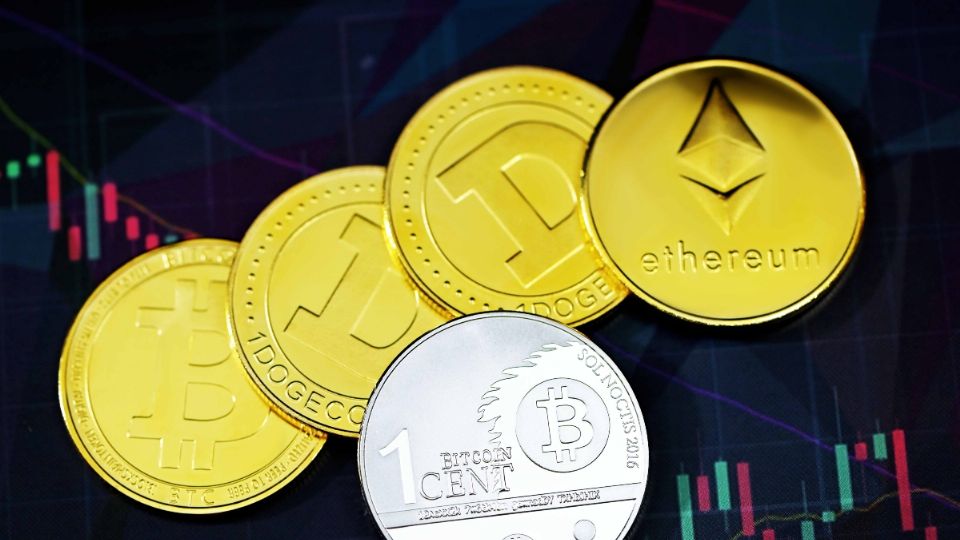In times of economic and political uncertainty, cryptocurrencies carry greater risks and volatility than other investments that have more and more specific regulation.
Considering both its limited number, since there will only be a total of 21 million Bitcoins in circulation (this is how Satoshi Nakamoto designed the program that creates Bitcoins), and its speculative nature, many cryptocurrency enthusiasts have presumed Bitcoin as a good refuge . against inflation.
Cryptocurrencies are assets that cannot be compared with others. Experts consulted by CNBC have opined that the value of cryptocurrencies in general is not related to that of shares listed on the stock exchange , because they are an entirely new asset.
They are supposed to function as a currency , but at least in the United States and Mexico, the profits obtained from selling them must be taxed as if they were a good not specifically contemplated by law. There are those who compare them with a "commodity" (basic products exchangeable for units of the same species, such as oil or orange juice).
This is how cryptocurrencies are more similar to so-called " alternative investments ", such as art, collector's wines and precious metals. Despite their scarcity, their value largely depends on the buyer, since to this day they are not easily exchangeable for a good or service.
Recent losses in cryptocurrency prices have discredited them
The losses in value that cryptocurrencies have had this 2022 weaken any argument that until a few months ago positioned them as a protective "store of value" against inflation , given that, on the date I write (October 13) the price of Bitcoin has lost approximately 70% of the value it had on this same date in 2021.
To this should be added, as NextAdvisor magazine points out , the fall of the stablecoin known as “Terra” (UST) , which erased US$400 “billion” of capitalization value of cryptocurrencies in general in just a few days during the past Month of May.
Continuing with the reports, some experts predict that the worst is yet to come , and the prices of cryptocurrencies could go even lower . All of these events should remind us that cryptocurrencies involve greater risks and volatility than other investments that have more and more specific regulation, particularly in times of economic and political uncertainty.
Inflation, by itself, has not had a major effect on crypto prices
On this same day, October 13, 2022, the report of the US central bank (commonly known as the "Fed") was issued regarding inflation in that country; In the report it was evident that prices in the United States of America increased more than expected by analysts, reaching 8.5% annually.
Many experts expected that report to significantly impact cryptocurrency prices , forcing them down. However, price behavior has been mixed; with Bitcoin up around 5% today alone. Surprisingly, since last June cryptocurrencies have performed better (as an investment) than stocks.
According to some analysts, this is because around 70% of cryptocurrencies have been held by their owners for more than a year, which suggests that the “swallow” investors have left and are being acquired by a larger number of institutional investors.
Cryptocurrencies still face several obstacles to be a haven against inflation
Insiders believe that cryptocurrencies will indeed become an effective hedge against inflation , but to do so they must overcome the following mutually reinforcing hurdles. They must be accepted as a real investment alternative by a greater proportion of investors:
The high environmental cost of Bitcoin "mining" is certainly an important consideration for investing in that cryptocurrency; but that is something that Ethereum has solved recently and with great success from a technical point of view. Likewise, the constant flaws in the security of blockchains act as a further disincentive to acquire these investments.
The markets in which they operate must generate confidence among investors.
The use of DEXs (decentralized markets), the favorite channel for buying and selling cryptocurrencies that allow peer-to-peer operations, makes transactions very expensive and the decentralized nature of these markets makes them slow. .
Centralized markets (resembling stock exchanges in function, such as Coinbase, Crypto.com, Gemini, and Binance) operate in many countries in gray areas of law and have been “hacked” multiple times (disappearing the cryptocurrencies that they protected); this generates mistrust.
There must be a greater amount of historical data that allows for serious quantitative analysis of the expected behavior of these assets.
The oldest cryptocurrency (Bitcoin) is barely 13 years old and the vast majority of them are less than 6; In addition to this, this existence has occurred during a period in which interest rates were historically low and therefore difficult to present in the future.
Considering that they are unique investments and with little history in the markets, it seems to me that in these times of financial turbulence it is better to be cautious when investing in cryptocurrencies and I think that today it would be unwise to use them as protection against inflation.
Despite the above points, the protocols of the blockchains continue to be perfected and with this it is likely that over time a greater adoption of cryptocurrencies will be achieved, which will result in greater stability in their prices and their consolidation as a "store of value".
Bitcoin price today
You can see today's price of Bitcoin here , as well as today's price of Ethereum and major cryptocurrencies. This magazine recommends the purchase of 10 cryptocurrencies as protection against inflation ; His analysis seemed interesting to me.
By: Emilio Carrillo, lawyer specialized in financing, technology and M&A. Twitter: @ecarrillop . The opinions expressed are personal to the author and do not constitute investment recommendations; Cryptocurrencies are very high risk assets and there is a possibility that the entire investment in them could be lost.



إرسال تعليق